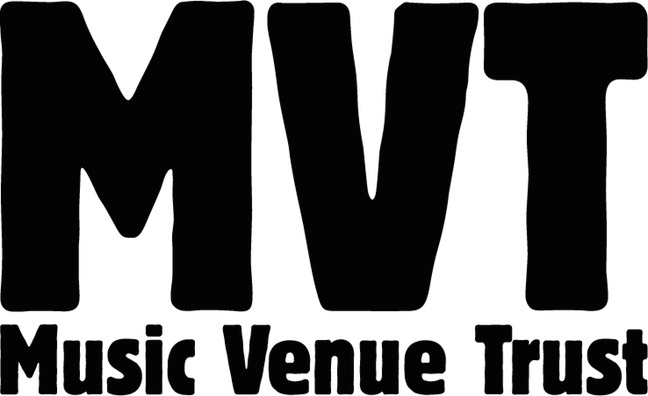The Music Venue Trust has hit out at PRS For Music’s new livestream licence for online grassroots events.
It follows a separate row last year with the MMF and FAC about the tariff for larger livestream events.
The collection society has launched the new licensing portal for music creators, venues and promoters wanting to stage and livestream small-scale gigs, DJ events, classical concerts and theatrical events online. The portal has been launched in response to the huge rise in livestreamed concerts as a result of the coronavirus pandemic.
Available for live online events staged in the UK with revenues below £500, the new portal will allow the event organiser to pay the fixed licence fee and obtain the necessary rights for their event. The licence costs £45 plus VAT for events bringing in revenue of between £251 to £500. For revenue below that, the licence costs £22.50.
Andrea Martin, CEO, PRS for Music, said: “We recognise the importance of providing simple licensing solutions wherever possible and the licensing portal for small-scale online events is an example of this.”
John Truelove, writer director, PRS Members’ Council, said: “Composers and songwriters have faced monumental challenges this past year. So, the huge surge in the online live concert market beyond anyone’s expectations, is positive news all round. It is great that so many artists are performing online concerts to stay connected with fans, to earn a living, and to promote new releases. Anyone wanting to hold small online ticketed gigs can now get a PRS licence in a simple and straightforward way. This will create even more opportunities for artists, musicians and writers to thrive together while ensuring that songwriters and composers are being properly paid when their music is performed.”
But Music Venue Trust CEO Mark Davyd has voiced concerns about the new tariff.
"The live music industry, including grassroots music venues, artists and promoters, is in crisis mode and pulling together,” he said. “The team at MVT have been in regular correspondence with PRS For Music throughout this crisis on how we can work together to ensure everyone emerges from this crisis and we can get back to work. At no time during those conversations has anybody suggested that a new tariff for streaming would be created. We have not been consulted on this, advised of it, or even notified of it prior to a press release being issued.
“The principal beneficiaries of paid streaming during this crisis have been artists. The beneficiaries of charitable streaming, online broadcasts by artists to raise money for causes, have included venues, crew, artists, and the wider community, including healthcare workers, food banks and homeless charities. It is unclear from this press statement whether PRS for Music wishes to clamp down on artists paying themselves or on artists supporting charities, but we would strongly suggest that neither should have been advanced to the stage of an announcement of a tariff without understanding the most basic economics of what streaming is actually doing during this crisis.”
We remain available to discuss the realities of streaming during this crisis with PRS for Music
Mark Davyd
Davyd added: “We remain available to discuss the realities of streaming during this crisis with PRS for Music if they wish to have an informed discussion on it. Unilaterally announcing ill-conceived new tariffs in a crisis is not such a discussion. “
In a Tweet, the MVT added: "It is extremely important to the grassroots sector that the songwriters whose work sit at the heart of our ecosystem are adequately and reasonable paid for their work. A fixed rate Tariff is not a mechanism by which that will be achieved, and the methodology and rate proposed by PRS for Music will not result in grassroots songwriters being paid for their work."
In a joint statement responding to the small-scale event livestream tariff, the FAC and MMF suggested that some artists promoting their own shows would be obliged to pay up to 100%-plus of gross revenues to PRS even if performing their own original compositions for free.
David Martin, CEO FAC, and Annabella Coldrick, chief executive, MMF, said: “All of us want songwriters and composers to be paid fairly and efficiently for the use of their work, but this is not the way to go about it. Once again, we would urge PRS for Music to stop acting unilaterally. They need to urgently listen to the growing concerns of artists and their representatives during the pandemic, implement a waiver for performer-writers to opt-out of such fees, and commit to a full and transparent industry-wide consultation before issuing invoices to cash-strapped artists.”
PRS has been working on licensing solutions for livestreams, which have become an alternative revenue source during the pandemic. PRS is proposing to apply temporary discounted rates on livestream licensing for bigger events until the live sector can reopen.
“We are continuing to work hard to agree a range of licensing options for providers of larger events, including a proposed discounted rate during the pandemic,” said Martin. “This is a part of the market which has seen exponential growth and is itself constantly evolving, meeting the expectations for worldwide blanket licences is alone no small feat, but we are committed to finding solutions which ensure members can be paid fairly when their works are performed.”
While conversations are active and ongoing with major licensees about the discounted rates, anyone considering an online ticketed event that does not qualify for the fixed fee is advised to seek advice from PRS.
PRS for Music is in discussion with other societies to deliver licensing solutions for UK-based gigs and concerts which might be accessed internationally. A global blanket licence of this type would be the first of its kind within the collecting society network.









